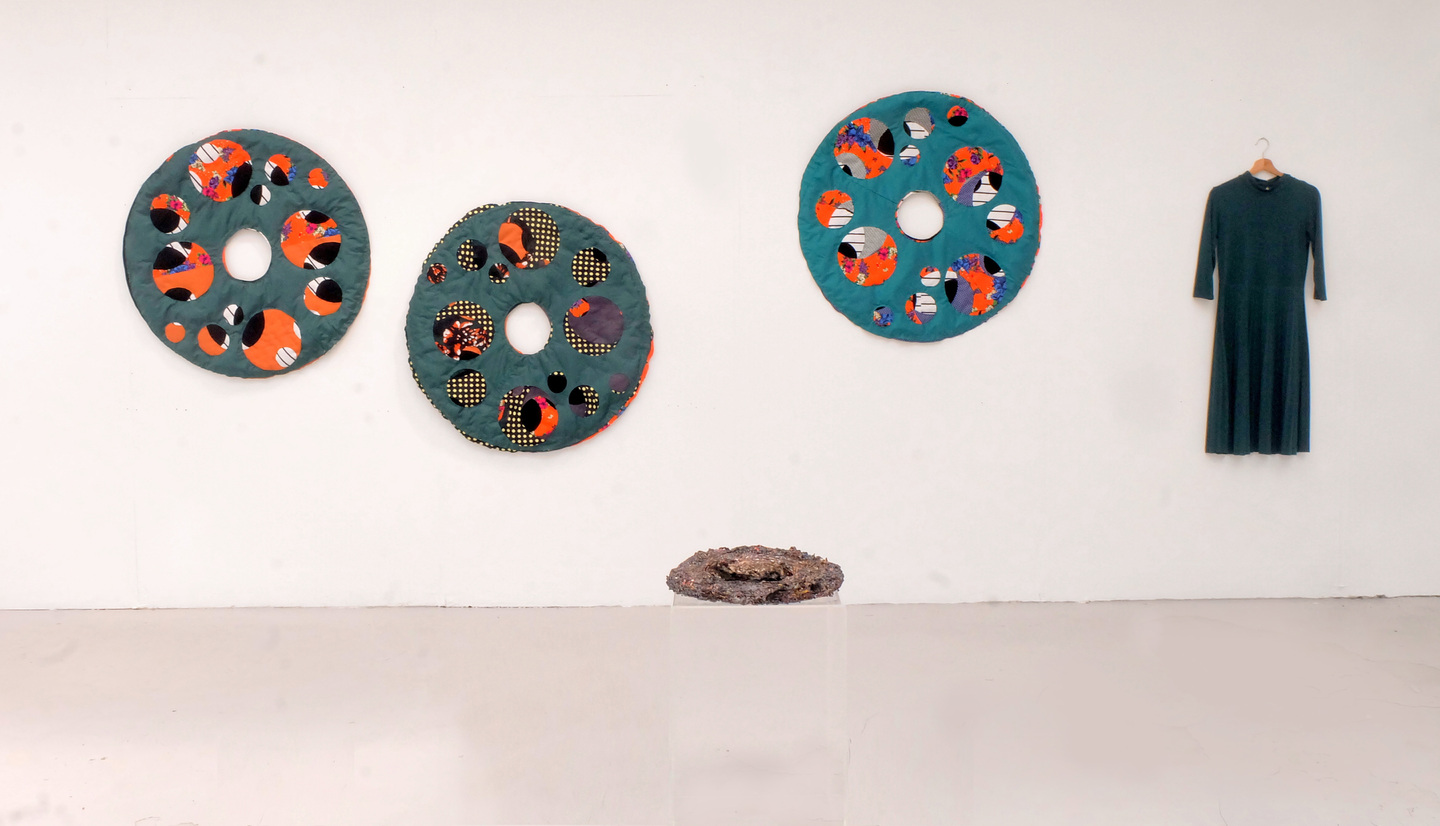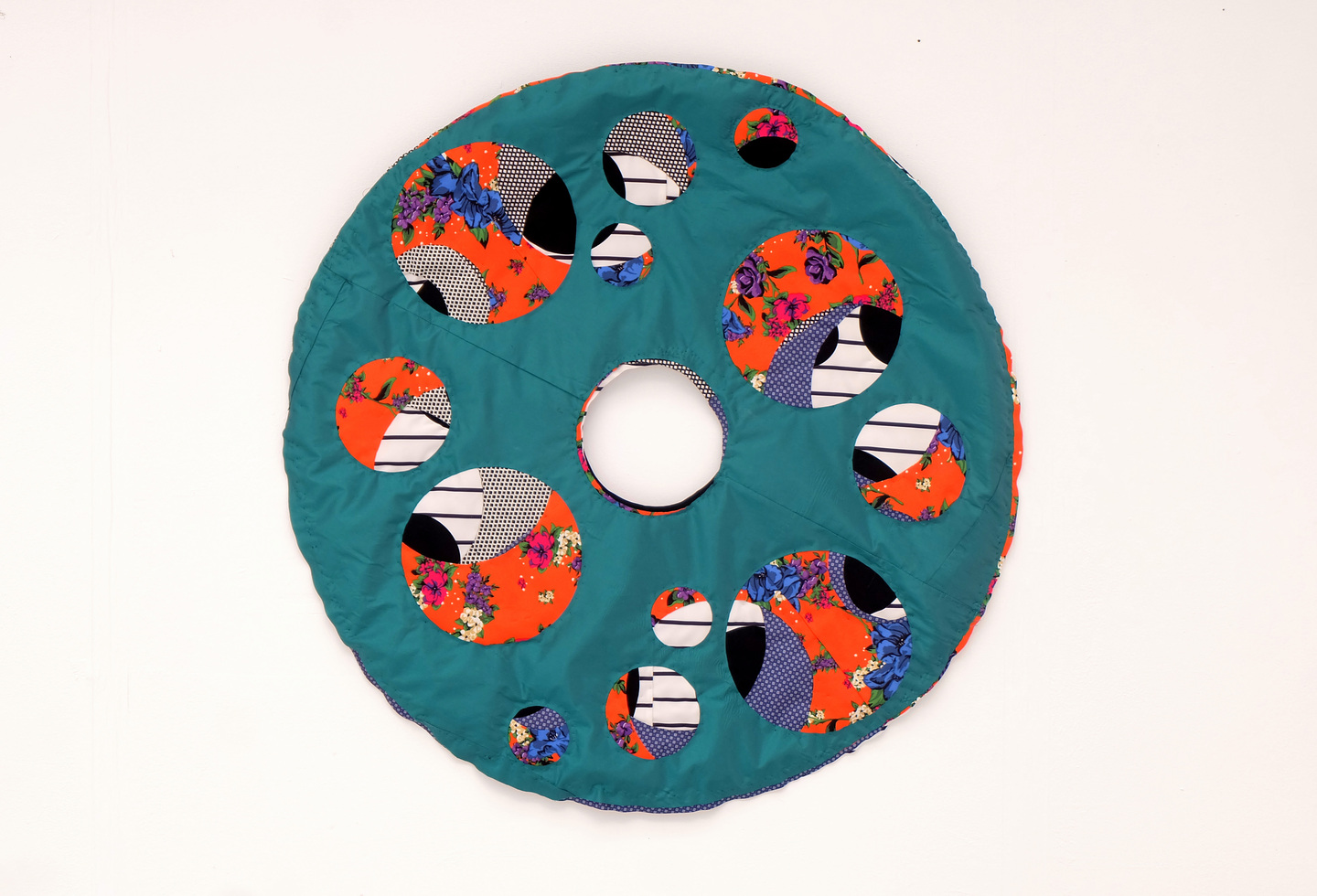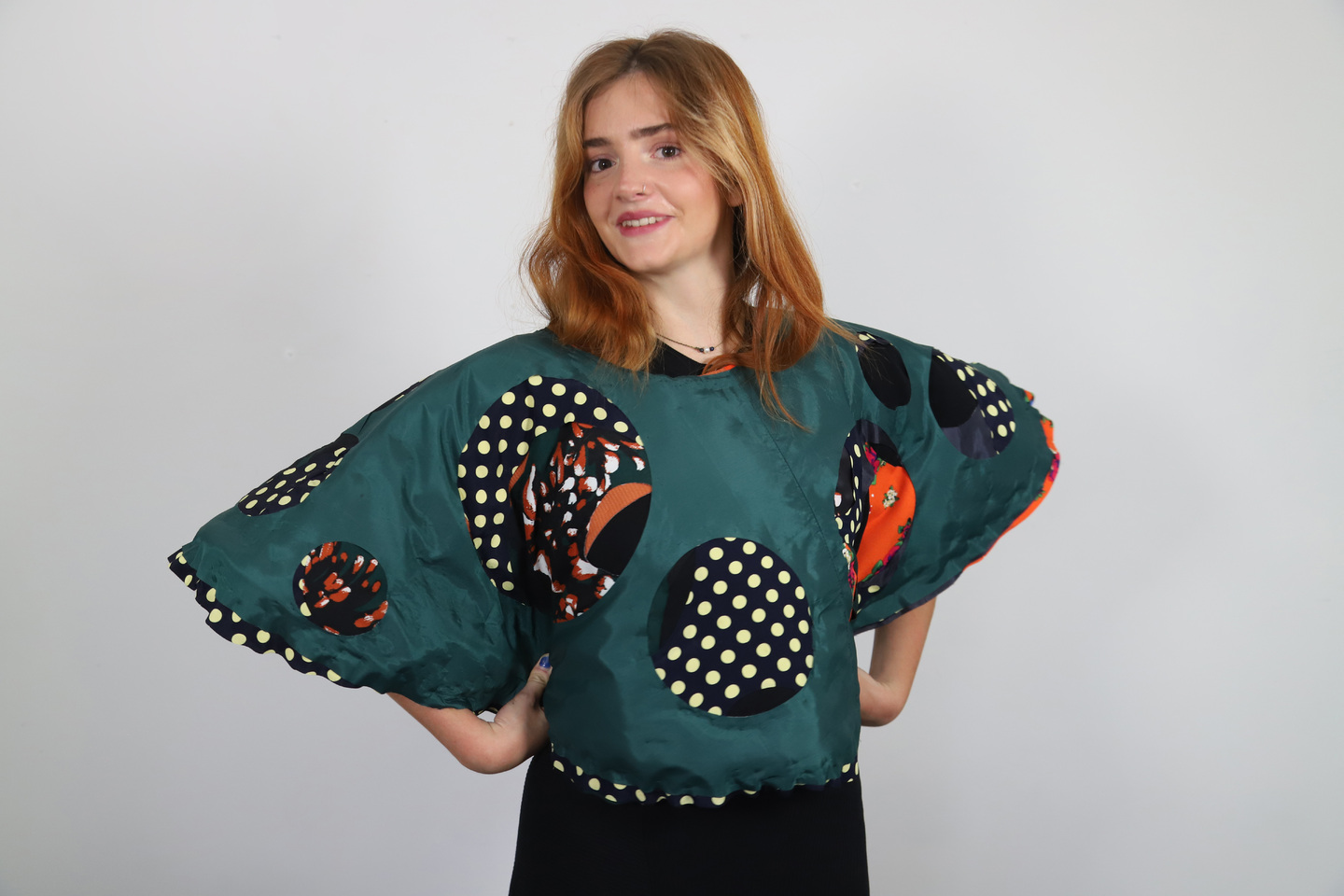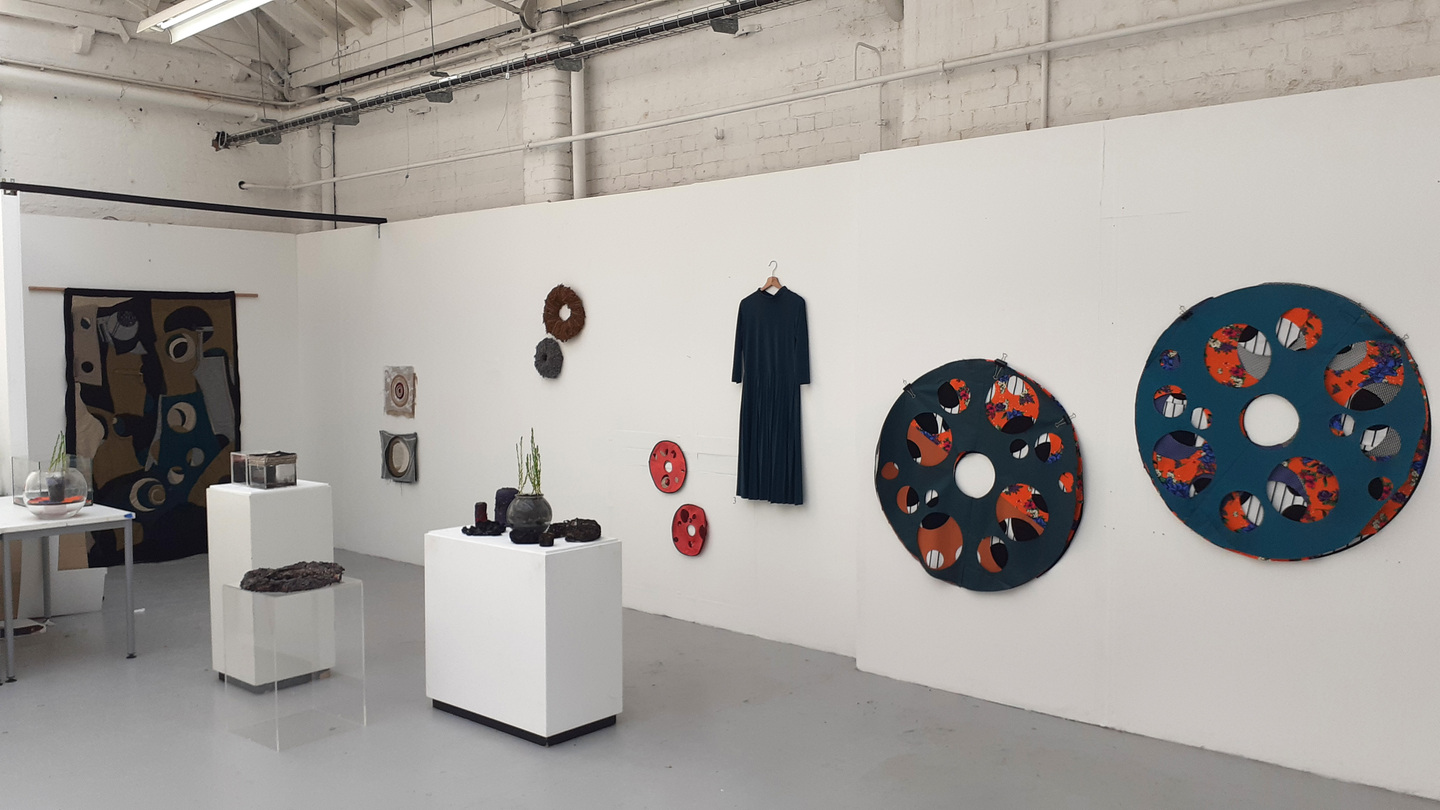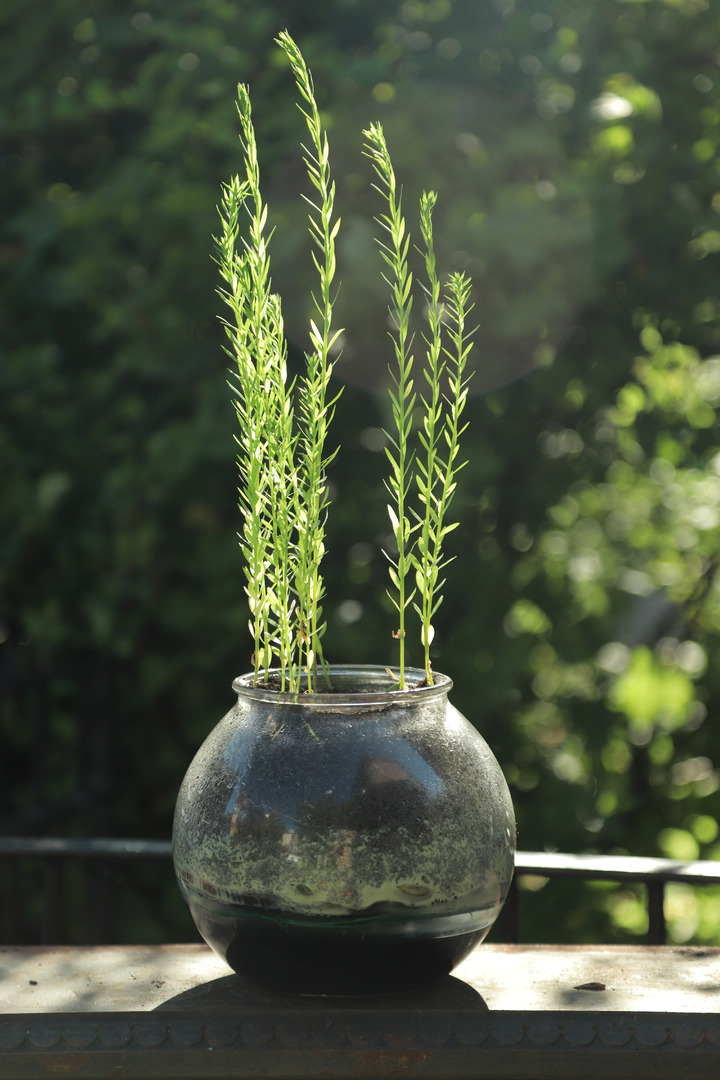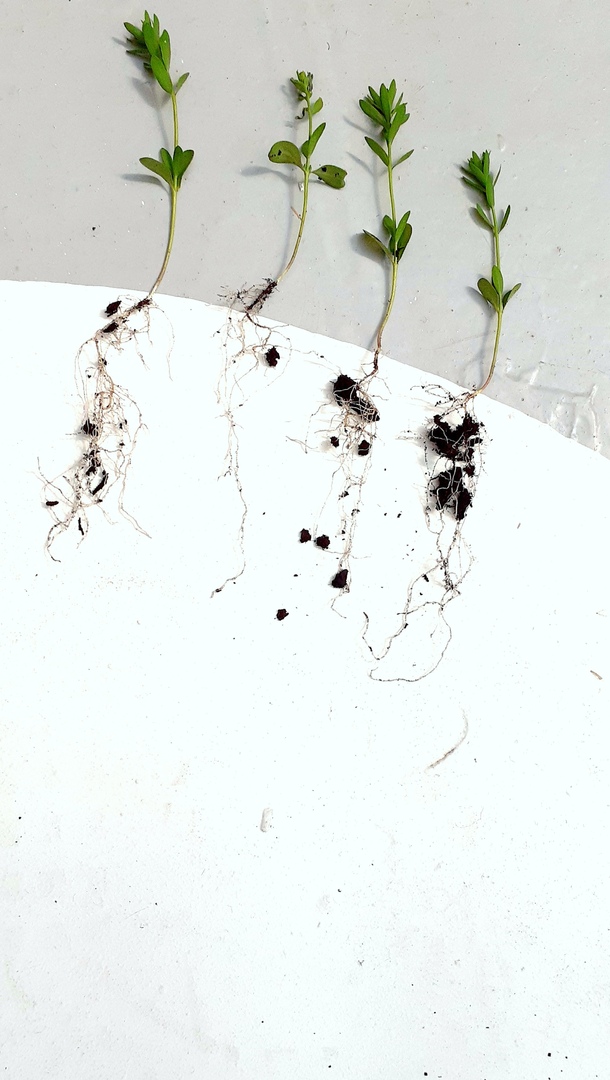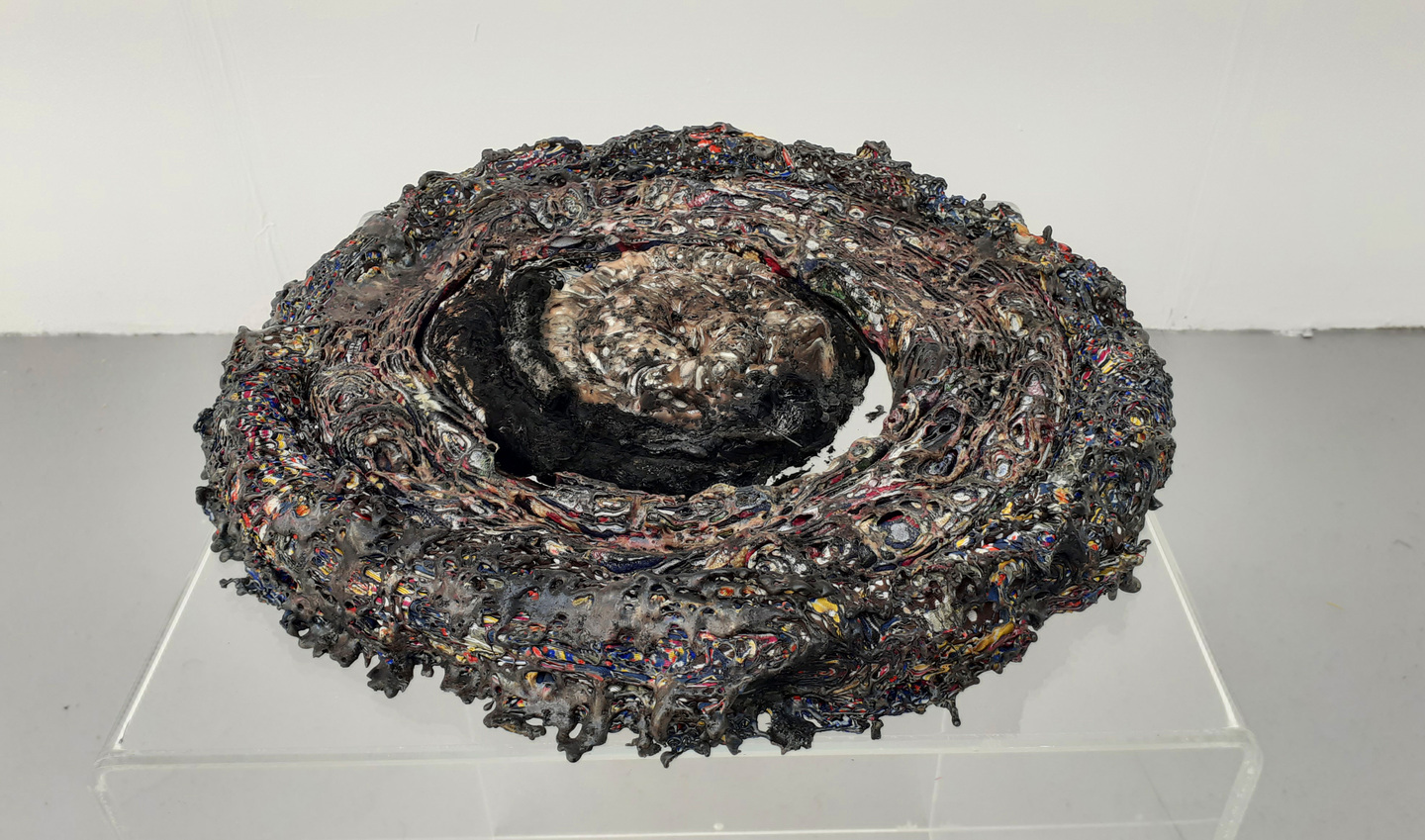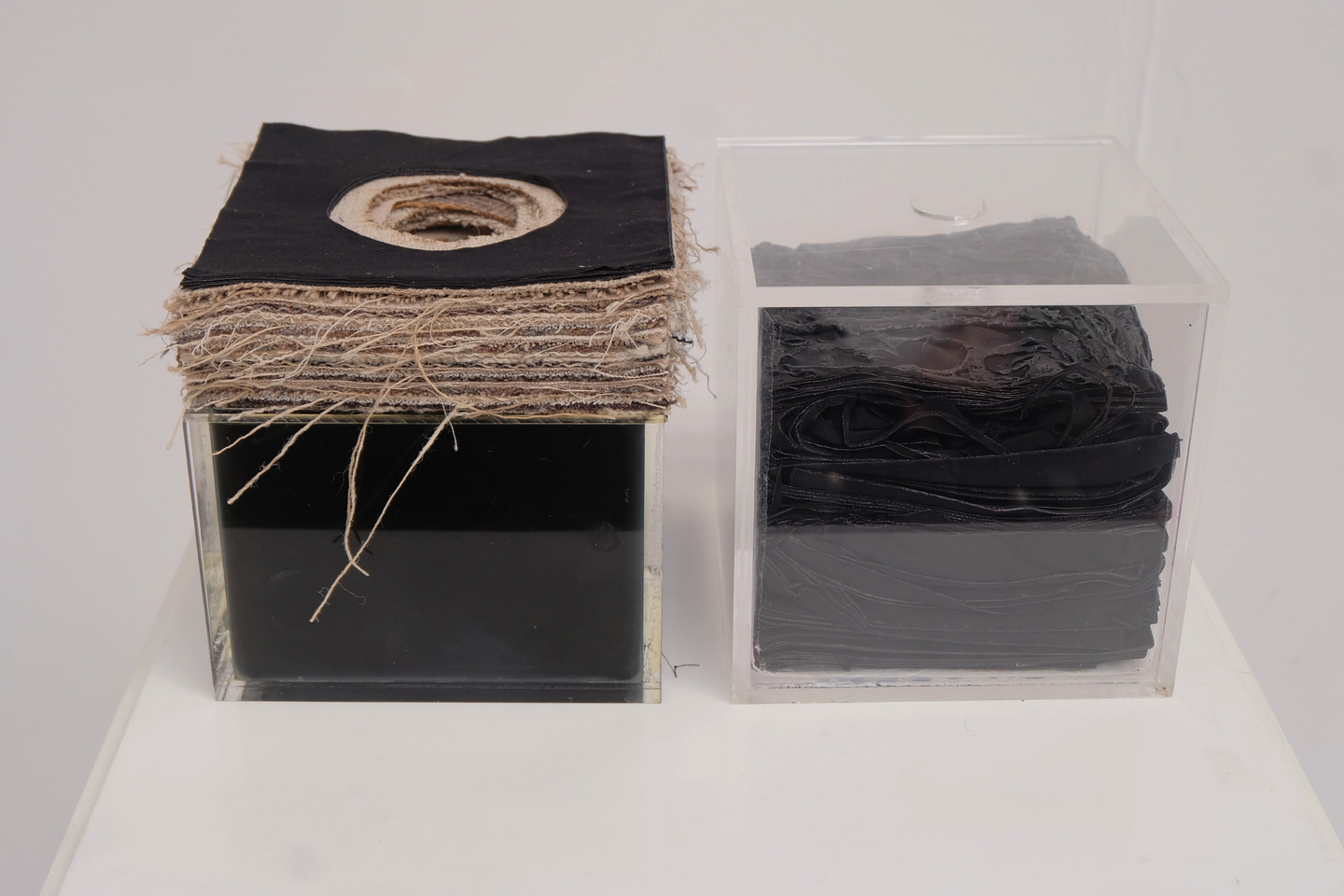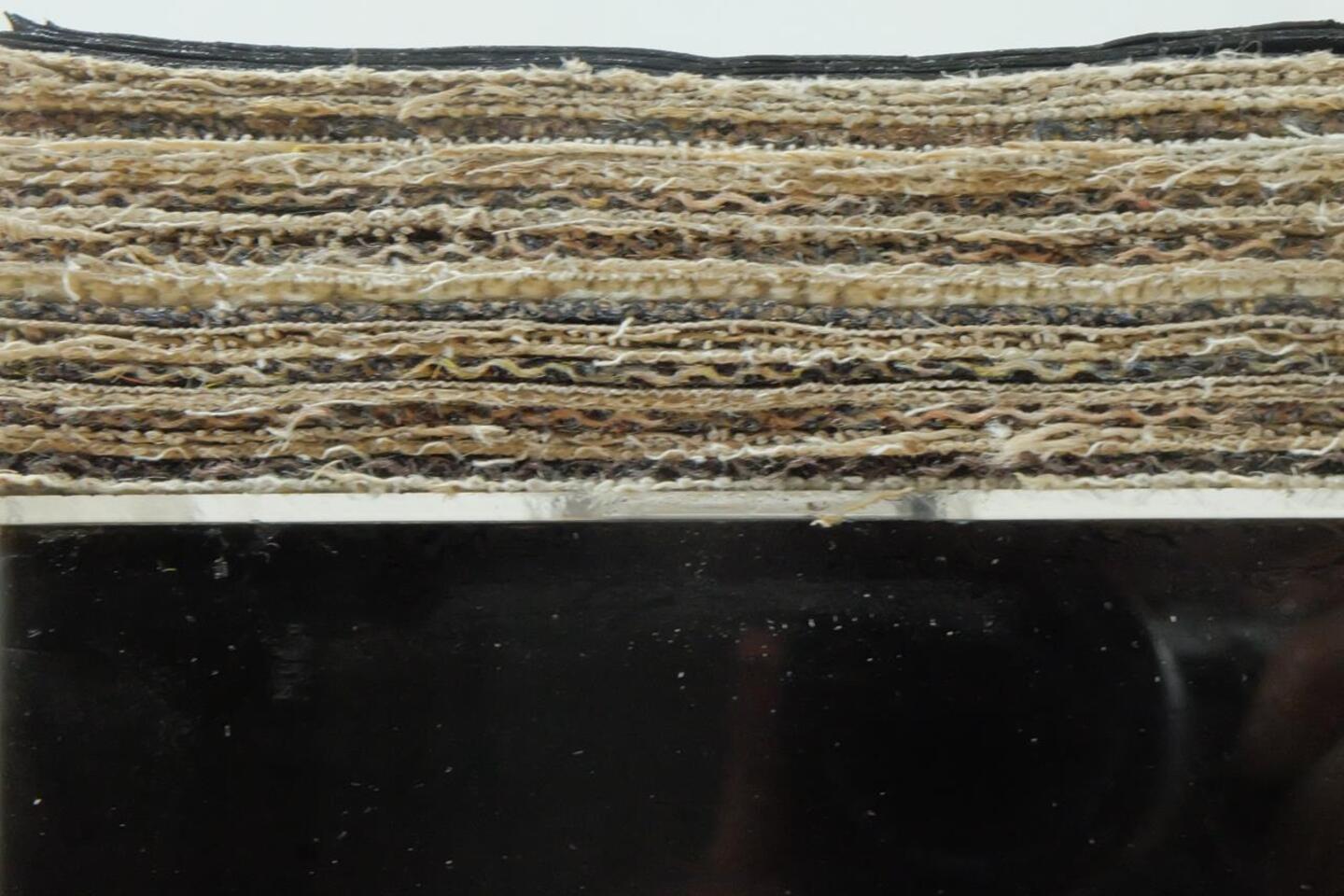Adele Jordan
MA Textiles
The focus of my work is fast fashion and its reliance on oil, which now accounts for 69% of all textile output. Does it require geopolitics on a global level to halt the use of oil in our textile industry?
Collaborating with a Material Scientist to undertake a form of ‘reverse alchemy’, I’ve been able to calculate the oil content in synthetic fabrics as well as observing its melting properties that reduce garments to plastic. These resemble a material that is now identified by geologists as ‘plastiglomerate’, indicative of our anthropogenic impact on our planet.
Underpinning all this is Kate Raworth’s economic ‘Doughnut Theory’, which clearly defines the outer edge as our ecological ceiling. To go beyond this, which we currently are, will trigger further climate breakdown, loss of bio-diversity and extreme poverty unless urgently addressed. My metre wide ‘doughnuts’ are made from discarded fabrics, using unwanted duvets as the filling. With a versatile function, they can be worn as an extremely warm poncho/cape, helping to address the harsh realities of the energy crisis.
My terrariums constitute a living strata, layering together oil, plastic, synthetic fabrics, gravel, soil and flax. As a carbon beneficial plant, flax sequesters carbon from the atmosphere, and can be grown in areas not suitable for food. My focus is upon the root connectivity, as a positive metaphor of how regenerative farming, and a circular, sustainable economy of reduced consumption, can address the climate crisis and our broken textile/food systems by keeping oil in the ground.

